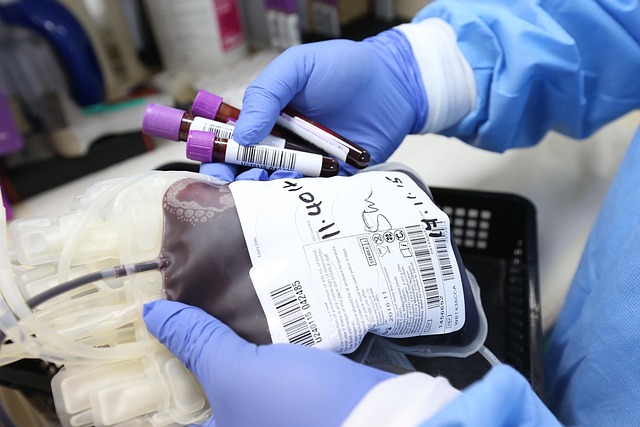Exploring Turkish Dental Implants in the U.S.: Costs, Access, and Coverage
Turkish dental implants in the U.S. are gaining attention as patients explore treatment options and compare costs. This article explains access to care, considerations before choosing implants, and how insurance coverage may affect treatment decisions in the United States.

What Turkish Dental Implants in the U.S. Are and How They Work
Turkish dental implants refer to either implant systems manufactured in Turkey or dental implant procedures performed by dentists trained in Turkish dental techniques. The basic implant structure remains consistent with global standards: a titanium post surgically placed into the jawbone acts as an artificial tooth root, with an abutment connecting the post to a custom-made crown that resembles a natural tooth. The procedure typically involves multiple stages, beginning with an initial consultation, followed by the surgical placement of the implant post, a healing period of several months for osseointegration (fusion of the implant with bone), and finally, the placement of the permanent crown.
Turkish dental techniques have gained recognition for combining modern technology with cost-efficient approaches. Some Turkish-trained dentists practicing in the U.S. may implement specific methodologies learned abroad, though they must comply with American dental practice standards and regulations. The implant materials themselves may be imported from Turkish manufacturers that have received FDA clearance, though this represents a small segment of the dental implant market in the United States.
Access and Availability of Turkish Dental Implants in the United States
The availability of Turkish dental implants in the United States exists in several forms. First, a limited number of U.S. dental practices may use implant systems manufactured in Turkey that have received FDA approval. More commonly, dentists of Turkish origin or those trained in Turkey who have obtained U.S. licensure may practice implant dentistry while incorporating techniques they learned in Turkey.
Finding dentists who specifically offer Turkish dental implant systems or techniques requires research. Patients interested in this option might search for dental professionals with Turkish dental education backgrounds or practices that explicitly advertise the use of Turkish implant systems. Specialty dental clinics in metropolitan areas with significant Turkish-American populations may be more likely to offer these options.
It’s important to note that regardless of a dentist’s training background, all dental professionals practicing in the U.S. must meet American licensing requirements, and all dental materials must comply with FDA regulations, ensuring a basic level of safety and quality.
Budget-Friendly Options for Dental Implants in the U.S.
For patients seeking cost-effective dental implant solutions, several approaches exist beyond specifically seeking Turkish systems. Dental schools often provide discounted implant services performed by supervised students. Community health centers sometimes offer sliding scale payment options based on income. Some private practices provide in-house membership plans or financing options that make implants more accessible.
Group dental discount plans represent another alternative, offering reduced rates on various dental procedures including implants. For those considering Turkish dental options specifically for budget reasons, comparing these costs with other domestic alternatives is essential. Some patients pursue dental tourism to Turkey itself, where the same procedure might cost significantly less, though this involves travel expenses and potential complications with follow-up care.
When evaluating budget-friendly options, patients should carefully consider the total cost of care, including initial consultations, any necessary preparatory procedures like extractions or bone grafts, the implant surgery itself, and the final restoration work.
Treatment Costs and How Insurance Coverage May Apply
Dental implant costs vary significantly based on geographic location, provider experience, materials used, and case complexity. While traditional dental implants in the U.S. typically range from $3,000 to $6,000 per tooth including all components and procedures, Turkish-manufactured implants or procedures performed by Turkish-trained dentists in the U.S. may sometimes (though not always) offer slight cost advantages.
Most standard dental insurance plans offer limited coverage for implants, often categorizing them as cosmetic procedures. However, this landscape is changing as more insurance companies recognize implants as medically necessary replacements for missing teeth. Typically, insurance might cover 50% of the implant cost up to the plan’s annual maximum, which often ranges from $1,000 to $2,000.
The table below provides a general comparison of dental implant options and their approximate costs in the U.S.:
| Implant Option | Provider Type | Approximate Cost Per Single Implant | Typical Insurance Coverage |
|---|---|---|---|
| Standard U.S. Implant Systems | Private Practice | $3,000-$6,000 | Partial (typically 50% up to annual maximum) |
| Turkish-Manufactured Implant Systems (in U.S.) | Private Practice | $2,500-$5,000 | Same as standard systems |
| Dental School Clinics | Teaching Institution | $1,500-$3,000 | Same as standard systems |
| Community Health Centers | Public Health | $2,000-$4,000 | May accept Medicaid in some states |
| Dental Discount Plans | Network Providers | $2,000-$4,500 | N/A (discount applied instead) |
Prices, rates, or cost estimates mentioned in this article are based on the latest available information but may change over time. Independent research is advised before making financial decisions.
Key Considerations Before Choosing Turkish Dental Implants
Before pursuing Turkish dental implant options, several important factors warrant careful consideration. First, verify the dentist’s credentials and training, ensuring they hold appropriate American dental licenses regardless of where they trained. Ask about the specific implant brand being used and research its track record, FDA approval status, and warranty terms.
Inquire about the dentist’s experience specifically with the implant system they’re proposing, including their success rates and complication management protocols. Understand the complete treatment timeline, including all required follow-up visits and the contingency plan if complications arise.
Consider long-term maintenance requirements and whether replacement parts will remain available if the original manufacturer is overseas. Compare multiple options and providers before making a decision, and ensure you understand exactly what is included in quoted prices to avoid unexpected costs.
Finally, prioritize quality and safety over cost alone. While seeking affordable options is understandable, dental implants are long-term investments in oral health that, when properly placed and maintained, can last decades. Choosing based solely on lowest price might result in higher costs later if complications develop or implants fail prematurely.
This article is for informational purposes only and should not be considered medical advice. Please consult a qualified healthcare professional for personalized guidance and treatment.




